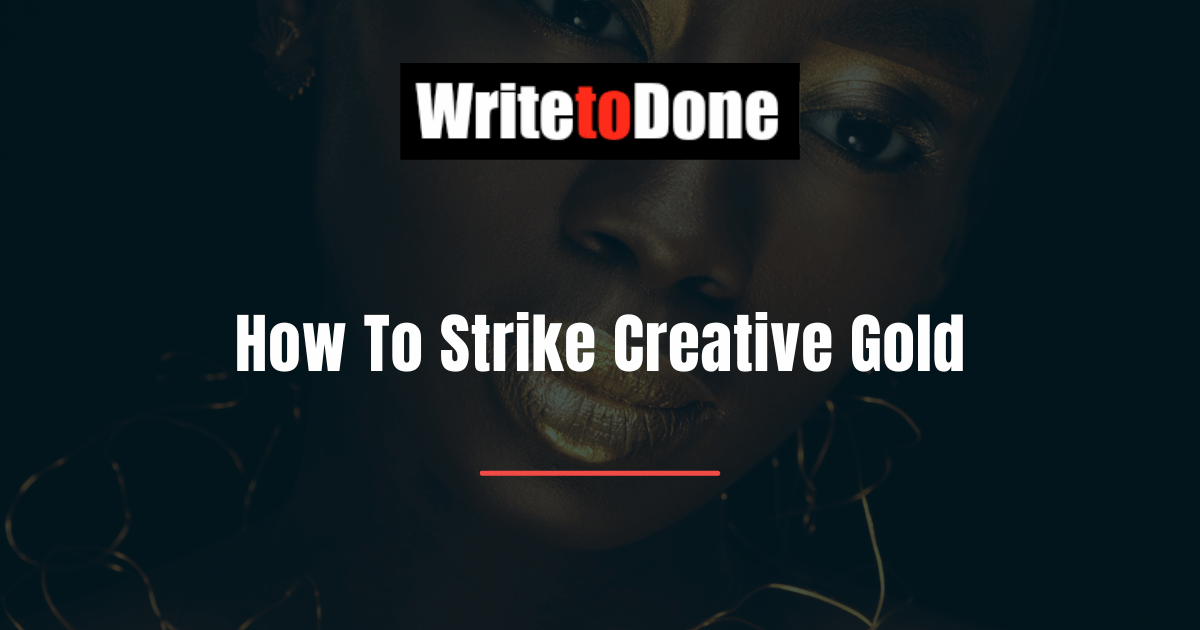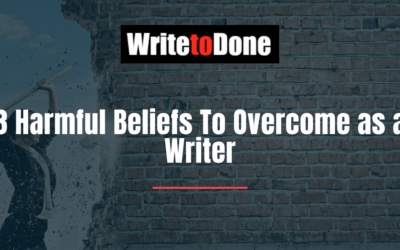Last week, your writing seemed fine.
Well, maybe not fine, but at least okay.
The plot and pacing in your story worked well enough. Your poetry flowed. You like where your nonfiction outline was headed.
Then, whammo!
Out of nowhere, your imagination runs dry.
Today, nothing’s right when you write. You struggle with the blank page, clawing for each word. In fact, your entire writing session feels like a complete waste of time.
Is it an off-day…a slump…writer’s block?
Worse, have you lost your gift forever?
No matter what you call it, the truth is…
It’s a problem.
You don’t like it when you can’t write. You feel shaky and abandoned.
Why Do Writers Lose Their Creativity?
We don’t “lose” our creativity. We can’t just go to the Lost & Found to reclaim our muse.
Life ebbs and flows. No one writes brilliantly all the time. If they say they do, they’re lying.
When you understand what hurts or helps your imagination, you have a better chance of striking creative gold more often.
Sadly, there are endless ways that writers use and abuse themselves. Here are the top five creativity killers.
1. Fear
Fear is the #1 killer of creativity. Fear of failure. Fear of success. Fear of 1,000,001 terrifying situations that all end badly.
Fear paralyzes new writers as well as New York Times bestselling authors. That’s fear’s job.
To keep us from writing. To not let our fire burn bright. To keep the status quo.
Yes, it’s intimidating as hell to be on page four of a four-hundred page novel, but you’ve got to start somewhere.
One of my favorite Write to Done blog posts taught me a great trick for dealing with fear.
What’s interesting is that fear is actually a good sign for writers. Self-doubt points to what we want to do. The more something scares you, the more important it is that you write about it.
Let fear guide you to greatness.
2. Perfectionism
This is a socially acceptable form of abuse. Seriously.
Most writers suffer from good ol’ feelings of “not good enough.” Constantly criticizing your work becomes a vicious cycle.
Writing is delicious, but messy. It’s like any other skill – the more you practice, the better you become.
Creativity is not a linear process.
Give yourself room for sucky first drafts. Let yourself make mistakes. Lighten up, and your imagination will thank you with new ideas, stronger prose and more confidence.
3. Busyness
Society works 24/7 these days. Overscheduling is almost a way of life.
Many people feel they have to say “yes” to every project, regardless of their schedule, because they don’t live on a guaranteed paycheck.
No matter how much (or little) you write, you need time and space in order to create. We all do. Our minds need downtime to just daydream…ponder…rest.
4. Procrastination
This may be the most popular creative killer because it’s so darn easy to rationalize.
Yes, the dishes need washing, the laundry needs folding, and that work email should be sent today. However, most chores and many other time wasters can be done after you write.
Don’t let your list of To Do’s keep you from what you want to do – write.
5. Health
It’s interesting how we physically hurt our artistic selves, because it’s one of the few areas in our lives over which we have some control.
You’ve heard this before, but going back to the basics will do wonders when you’re struggling.
- Get enough sleep: 7 – 9 hours is best.
- Eat nutritious foods: Lose the fast food. Sugar is the devil! Alcohol is sugar, people. It’s fine to aspire to write like F. Scott Fitzgerald, but don’t drink yourself to death like him.
- Exercise: You don’t have to go to the gym, just move your body in a way that’s fun for at least 20 minutes a day.
Burnout is a horrible combination of any or all of the above.
Either you’ve experienced success and run out of steam, or maybe you want to write a new genre and are afraid of how your audience will respond.
Plus, I’ve seen vicious online reviews scar authors forever.
Equally as depressing is the case for writers who’ve tried for years, with little payoff – neither publication, nor much income from their writing.
But it doesn’t have to be this way.
Strike Creative Gold – In Just Minutes a Day
When I first stumbled on this process years ago, I was very much a broken writer. I was devastated at having just parted ways with my literary agent.
I happened to pick up a needlepoint project I’d started, but never finished. I sat on my couch and needlepointed for a few minutes. My mind whirled from pain, then… my thoughts sort of spaced out.
Nothing miraculous happened to me, but during that brief time, I lost myself in the ritual of looping the thread through the canvas over and over.
It felt hypnotic. The hurt was still there, but I needlepointed the next day… and the next…
In the following weeks, I discovered I was recovering from my literary heartbreak. I even thought of a great plot for my fourth novel (which I’ve since completed).
You don’t have to needlepoint. I haven’t done so since then.
How to Mine Inspirational Gold
Whether you feel crushed like I did, or just want to hit the mother lode more often, try this exercise.
Find a few minutes every day for some creative downtime.
The dictionary describes downtime as “time spent not working.”
- Pick a solitary, repetitive activity to quiet your thoughts. Think “mindless.”
- Do your downtime activity around the same time every day for 5 – 15 minutes. Of course, the longer you do it, the more it helps. However, some is better than none.
- Make it something you don’t typically do. If you’re a jogger, don’t run during your downtime.
- You do not have to empty your mind. It’s okay if your thoughts wander.
- Try your downtime activity for two weeks to see results. It may take longer, depending on how weakened you feel creatively. (It took me five weeks of needlepointing each day before I felt better.)
So what can you choose as your downtime activity? You could walk through your neighborhood, do yoga, doodle, or dance in your living room.
Or you might prefer to meditate, garden, sing tunes you make up, watch the sun rise or set, draw, paint, crochet, knit, bang on a drum or strum a guitar repetitively.
You might even choose mindless housework like dusting, vacuuming etc. The possibilities are endless.
What you want to avoid are activities that require focus, such as answering emails, writing notes, organizing files and so on.
Consistency with your downtime activity trains your brain in two important ways:
- It gives your mind the time and space to recharge its creative juices.
- You give yourself the permission to not produce, to just be present in the moment.
Cell phones need recharging each day. Our creativity does, too.
Warning: Don’t be surprised if you resist doing your downtime activity at first, or decide midway that it’s not working, or even stupid.
That’s fear trying to keep you from writing. Don’t let it stop you from pursuing your dreams.
Of course, you can always look for inspiration.
But giving yourself some well-deserved downtime is a surefire way to help you strike creative gold.
What do you do to mine your creativity? Share in the comments!

















